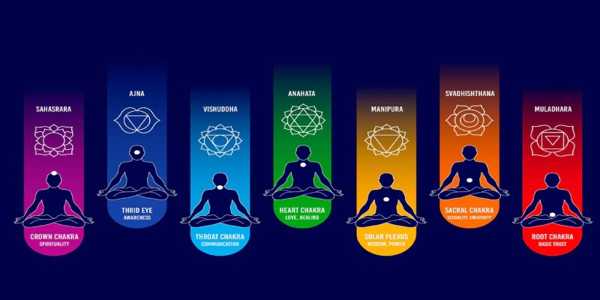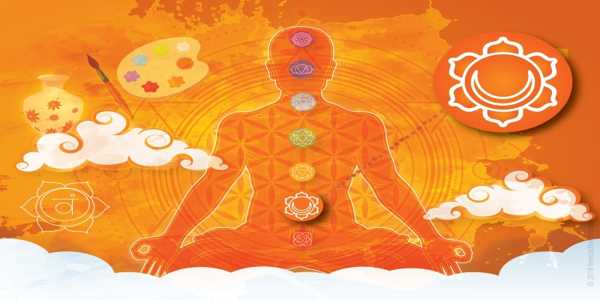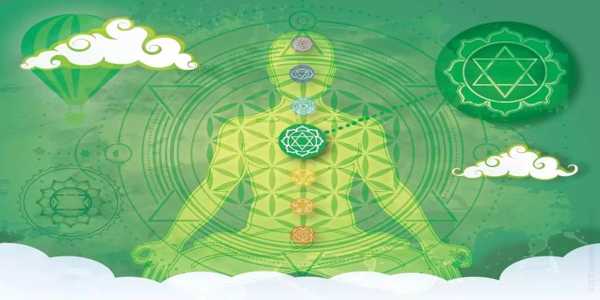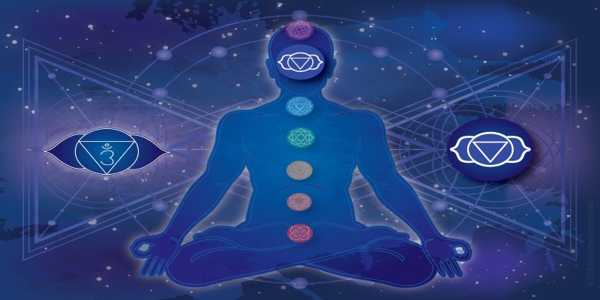
Chakras And Their Role In Emotional Balance
 Mental Health & Spiritual Healing
Mental Health & Spiritual Healing The concept of chakras has long been a part of ancient traditions, especially in Indian philosophy. Often described as centers of energy within the human body, chakras are believed to influence not just our physical health but also our emotional and psychological well-being. While the idea might seem abstract to some, understanding chakras can provide valuable insights into how we experience emotions and how we can maintain balance in our lives. In this article, we'll explore how chakras play a role in emotional health, how imbalances can affect our feelings, and ways to restore harmony within.
The concept of chakras has long been a part of ancient traditions, especially in Indian philosophy. Often described as centers of energy within the human body, chakras are believed to influence not just our physical health but also our emotional and psychological well-being. While the idea might seem abstract to some, understanding chakras can provide valuable insights into how we experience emotions and how we can maintain balance in our lives. In this article, we'll explore how chakras play a role in emotional health, how imbalances can affect our feelings, and ways to restore harmony within.
What Are Chakras?
At their core, chakras are described as energy centers that govern various aspects of our physical, emotional, and spiritual selves. The word "chakra" comes from Sanskrit, meaning "wheel" or "disk," symbolizing how these energy points are thought to spin and vibrate, influencing the flow of energy throughout our bodies. There are seven primary chakras, each located along the spine, starting from the base and rising to the crown of the head. These energy centers are connected to various organs and systems in the body, and each chakra is associated with specific emotions, thoughts, and behaviors.

The Emotional Role Of Chakras
Chakras are more than just abstract concepts; they are deeply connected to our emotional states. When these energy centers are open and balanced, we experience positive emotions like love, confidence, and inner peace. On the other hand, blockages or imbalances in any of the chakras can manifest as negative emotional states, such as anxiety, anger, sadness, or fear.
Root Chakra: Safety And Security
The root chakra is closely associated with feelings of safety and security. If this chakra is blocked or underactive, it may lead to feelings of instability or insecurity. People with an imbalanced root chakra may struggle with fear, financial worries, or a general sense of being ungrounded. This imbalance can cause anxiety related to basic survival needs, such as job security, home, and financial concerns. Restoring balance in the root chakra can help foster a sense of stability and self-assurance.
Sacral Chakra: Emotional Expression And Creativity
The sacral chakra, located just below the navel, governs emotional expression and creativity. This chakra influences how we handle our feelings and desires. If blocked, a person might feel emotionally detached, creatively stifled, or overly dependent on others for validation. This imbalance can lead to emotional repression, difficulty expressing emotions, or feelings of guilt and shame regarding one's desires. A balanced sacral chakra fosters emotional freedom, creativity, and a healthy connection to others.

Solar Plexus Chakra: Personal Power And Self-Esteem
The solar plexus chakra is linked to personal power, self-esteem, and confidence. If there is an imbalance in this chakra, it may result in low self-worth, feelings of powerlessness, or even issues related to control and manipulation. People may struggle with asserting themselves, leading to feelings of inadequacy. Conversely, an overactive solar plexus chakra can manifest as arrogance or an excessive need for dominance over others. Restoring balance in this chakra can promote confidence, autonomy, and self-respect.
Heart Chakra: Love And Compassion
The heart chakra is the center of love, compassion, and empathy. Emotional blockages in this chakra may cause feelings of loneliness, isolation, or a lack of empathy. Individuals may find it challenging to form meaningful connections or experience difficulty in relationships. A blocked heart chakra may also lead to fear of intimacy or a lack of self-love. When balanced, the heart chakra fosters genuine love, compassion, and empathy for oneself and others, improving relationships and emotional well-being.

Throat Chakra: Communication And Self-Expression
The throat chakra governs communication and self-expression. When blocked, it can result in an inability to express oneself clearly, leading to frustration or feeling misunderstood. People may suppress their emotions or avoid confrontation due to fear of speaking their truth. On the flip side, an overactive throat chakra can lead to excessive talking or dominating conversations. Restoring balance to the throat chakra helps foster clear, honest communication and encourages healthy emotional expression.
Third Eye Chakra: Intuition And Insight
The third eye chakra, located between the eyebrows, is linked to intuition, insight, and mental clarity. A blocked third eye can confuse, lack direction, or cause difficulty in making decisions. People may feel disconnected from their inner wisdom or struggle to understand their life's purpose. A well-functioning third eye promotes clarity, insight, and intuitive decision-making, helping individuals trust their inner guidance and develop a deeper understanding of themselves and the world around them.

Crown Chakra: Spiritual Connection And Purpose
The crown chakra, located at the top of the head, governs spiritual connection and higher consciousness. When blocked, it can result in feelings of disconnection, confusion, or a lack of purpose. This imbalance can lead to emotional distress, as individuals may struggle with finding meaning in their lives. A balanced crown chakra promotes a sense of spiritual connection, peace, and purpose, leading to an overall sense of fulfillment and harmony.
How To Restore Emotional Balance Through Chakras?
Balancing the chakras can have a profound effect on emotional well-being. Several practices can help open, balance, and align the energy centers, leading to a more harmonious emotional state.

Meditation and Mindfulness: One of the most effective ways to restore balance to the chakras is through regular meditation. Guided meditations that focus on each chakra can help increase awareness of emotional blockages and provide a way to release negative energy. Visualizing colors associated with each chakra while meditating can also be beneficial, as each chakra is linked to a specific color (e.g., red for the root chakra, green for the heart chakra).
Yoga: Certain yoga poses are designed to open up specific chakras and release emotional tension. For instance, poses like the Tree Pose (Vrksasana) can help ground the root chakra, while Heart Openers such as Camel Pose (Ustrasana) can help balance the heart chakra. The physical postures work in tandem with breathing techniques to help restore balance.
Breathwork: Conscious breathing exercises, such as pranayama, can stimulate the chakras and promote emotional balance. Deep breathing, in particular, can help calm the nervous system and release pent-up emotions.
Conclusion
Chakras play a significant role in our emotional well-being, influencing how we feel, express, and manage emotions. Imbalances in these energy centers can lead to emotional disturbances, but through practices like meditation, yoga, breathwork, and self-care, it is possible to restore harmony. By understanding and nurturing our chakras, we can enhance our emotional resilience, improve our relationships, and achieve a greater sense of balance in our lives. Recognizing the connection between physical and emotional health is key to living a more fulfilled and harmonious life.
